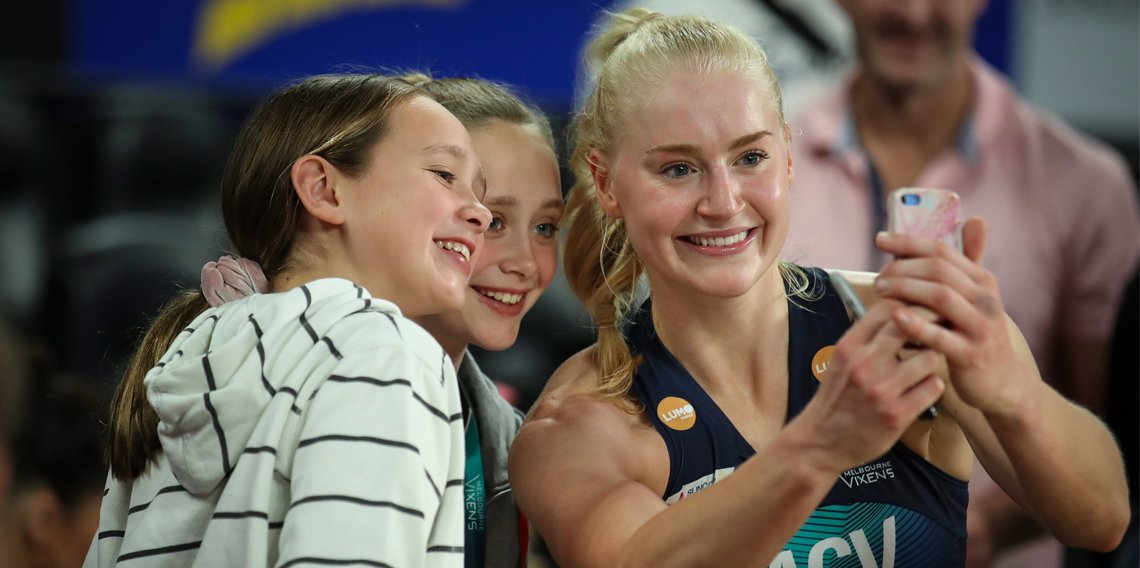[mkdf_dropcaps type=”normal” color=”#f55549″ background_color=””]S[/mkdf_dropcaps]
peaking to Ministry of Sport in part-two of a two-part interview, True North Research directors, Georgie Maynard, and Chris Hobden, explained the deeper value of emotional connection as a sponsorship metric.
Discussing why emotional connection is important for sporting clubs and brands to consider, Hobden said sport sponsorships rely heavily on brand fit.
“If you look at the data, it matters,” Hobden told Ministry of Sport when asked why brands should care about emotional connection.
“If you can drive connection and develop a bond with fans and supporters, you get outcomes.
“Positivity towards the brand in terms of sentiment increases, and brands are able to drive consideration, first-time and more frequent usage and greater trust in the brand.
“If you’ve got that level of emotional connection with the fans, you’ve got a base you can target.
“So, if brands can find the right sport and the team that aligns with their brand priorities and purpose, the rewards from the partnership can be high,” he said.
Adding to that point, Maynard said sponsorship outcomes are much more than just awareness and reach, which is why she claims QI metrics alone are not sufficient in evaluating the success of a partnership.
“There’s a clear correlation between emotional connection and sponsor outcomes, you are three times more likely to have a positive reaction to the sponsor if you have a strong emotional connection to the team versus those with a poor connection,” Maynard told Ministry of Sport.
“Awareness is one piece of the puzzle; you need awareness to achieve any of the objectives you’ve set for the partnership.
“But in terms of delivering on the partnership’s additional objectives then other factors play an important role.
“Factors such as whether the supporter base is open or primed for sponsorship messaging, this will vary by code, and of course the emotional connection to the team.
“That’s why we frequently see teams that have a really strong BenchMark EC Score™ are also the teams delivering strong outcomes for their sponsors.
“We recently did an evaluation for a sponsor of a major code, the awareness from the partnership was fantastic, but the actual outcomes were terrible.
“Furthermore, the outcomes were significantly lower than similar sponsorships in the same industry, who had partnerships in other codes.
“That’s the real advantage of BenchMark, we’ve evaluated so many sponsorships over the years, there is a huge bank of knowledge around how sponsorships are and should be performing against their industry peers and what KPIs they should be setting for the future.
“Sometimes a sponsor’s goal is to raise awareness, but in this example, driving consideration, usage, and trust in the brand was ultimately the end goal.
“For this sponsor we were able to provide recommendations around how to better activate the partnership, tapping into the drivers of emotional connection for its target audience, and start using the channels that its target audience were utilising to interact with the code,” she said.
Delving deeper into how to get the most out of emotional connection, Maynard examined the partnership between Puma and the Melbourne Vixens.
“Puma, with the Witness Fearless campaign, is an excellent example of how to activate, Puma has tapped into one of the key drivers of emotional connection that leads people to engage with netball, high performance,” Maynard said.
“Our BenchMark study shows that off the back of this activation, the Vixens’ Puma partnership has done incredibly well in driving first time usage of the Puma brand, ranking number one for the second year in a row for this metric,” she said.
The Melbourne Vixens, in previous conversations with Ministry of Sport, have stated that they’ve put emotional connection at the heart of their marketing strategy to drive marketing and activation strategies to drive deeper engagement with sponsors and loyalty amongst fans.
Maynard was asked whether this was a trend she believed other rights holders and brands will follow and if we will see more brands use emotional connection metrics to evaluate the success of their partnerships.
“More definitely should be using [emotional connection] and putting this at the core of their strategy moving forward,” Maynard said.
“Emotional connection plays a key role in marketing; how do you drive deeper emotional connection amongst your supporters and fans?
“Plus it helps operational teams set priorities.
“Our BenchMark tool also assists sponsors understand how to activate more successfully and evaluate the success of current or potential partnerships.
“Ultimately emotional connection is helping organisations answer key strategic questions,” she said.
Explaining how sponsorship marketing will look in 2021 as sports aim to recover from the COVID-19 pandemic and the role emotional connection will play, Hobden said sponsors need to truly understand the importance of aligning their priorities to build emotional connection.
“Brands are looking for an opportunity to really stand for something, they have been for a few years now, but I think coming out of COVID, those that really stand for something are going to perform better,” Hobden said.
“Looking for partnerships that align to those priorities, where they can really build a connection with their customer base, is going to be really important for them.
“I don’t think enough sports use emotional connection to drive the best outcomes for sponsors, which is bizarre because sport is all about emotion.
“But neither are sponsors, and so often you see sponsors throw money at sport and organisations, which is great because the sports need it, but all they’re doing is driving awareness levels of their brand and that’s it.
“While there are some sponsorships that need that, if you’re entering a new market, throwing a lot of money to create awareness is great and will get you top of mind, but at the end of the day, you need to come down the funnel and get people interested in the product and consider it, and buy whatever it is you’re trying to sell.
“I don’t think sponsors have truly understood that, at the moment there’s a lot of talk around how brands should be bringing their purpose to life and developing activations that truly leverage this narrative, but in our data, we are not seeing this narrative filter down to the partnership level,” he said.
Over the past three years, True North has evaluated thousands of Australian sports partnerships.
To find out if one of your partnerships has been evaluated by BenchMark, click here.
Part one of the two-part interview with Maynard and Hobden from True North Research saw them reflect on how COVID-19 has changed the Australian sport sponsorship market through 2020, click here if you missed part one.







